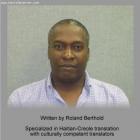Seven Deportation Centres at the Haiti-Dominican Border
ADVERTISEMENT
Under mounting pressure from the international community, President Danilo Medina had launched the "National Plan for the Regularization of Foreigners (PNRE)" which offered the opportunity to register the vulnerable as documented citizens within June 17, 2015, before 7:00 pm. Those who failed to register themselves would be sent to one of the seven in-transit deportation centres located at the Haiti-Dominican border built in the border cities of Dajabon, Independencia and Elias Pinas where the undocumented immigrants will be kept for 48 hours before their expulsion. The Dominican authority would deploy 'drone surveillances' on a two kilometer radius to assist in the patrolling of the border. The chancellor of the PNRE has said that there would be a 45-day administration period following the deadline to process the accepted applications and for allowing time to Haitian authority to deal with the sudden influx of deportees from DR.
Although President Martelly has declared that Haiti will "stand up to receive the return of its brothers in dignity," but there is little evidence of this determination on the border; there is little infrastructure on the ground in Haiti to welcome the 200,000 destitute refugees. One of such welcome center is located at the Haitian border crossing at Malpasse, just west of the Dominican town of Jimina. There the Jesuit Priests, with their best efforts have opened the door of a school where 40 immigrants, arrived so far are squatting as best they can in the dilapidated school building.
Dominicans gained their independence from Haiti, not from Spain. Anti-Haitian sentiments are never new in the Dominican Republic. Over generations, the Dominican politicians and dictators have stuck the undercurrent of anti-Haitian reservation for their benefits. Even the recent deadline for registration indicates the same hidden motive before the re-election of Dominican President Danilo Medina. Some human rights groups have slammed the D.R Government's decision on repatriation and many people have expressed their outrage over these events at #boycottDR.
Read more: Deportation, immigration
« We Are a People of Character, Prime Minister Evans Paul | Main | Dominican Republic to Deport Thousands of Haitians »
Leave a Reply
Name (required) E-mail (required, will not be published)
» »
Our objective is to share with you news and information about Haiti and the people of Haiti. Traditions, habits and the way we were or grew are alive in this site. We highly recommend that you Subscribe to our Newsletter and also share with us some of the things that are memorable and made us unique people.


 Haitian Thanksgiving
Haitian Thanksgiving  Haitians are a Proud People
Haitians are a Proud People  Haitian Creole Translation
Haitian Creole Translation  Life After Death
Life After Death  Battle of Vertieres
Battle of Vertieres